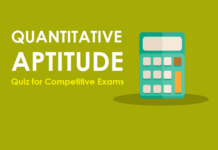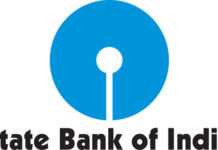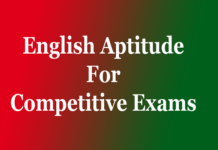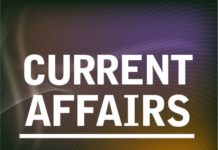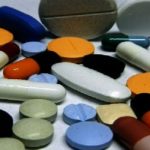Q-1 What was the rate of economic development in the democratic poor countries from 1950 to 2000?
(A) 2.24%, (B) 3.95%, (C) 4.42%, (D) 4.28%
Ans : (C)
Q-2 Who is called the father of Political Science?
(A) Plato, (B) Kautilya, (C) Aristotle, (D) Rousseau
Ans : (C)
Q-3 According to 2001 Census, what per cent of women is attached to agricultural sector?
(A) 53%, (B) 40%, (C) 75%, (D) 85%
Ans : (B)
Q-4 What is the rate of woman participation in politics of England?
(A) 16.3%, (B) 14.2%, (C) 13.9%, (D) 9.3%
Ans : (A)
Q-5 According to National Sample Survey of 1999-2000, what per cent of Rural Scheduled Castes live below poverty line?
(A) 35.9%, (B) 45.8%, (C) 26.8%, (D) 9.6%
Ans : (B)
Q-6 Which of the following is not according to the Democratic system?
(A) Equality before laws, (B) Free and fair election, (C) Responsible administrative system, (D) Government of the majority
Ans : (D)
Q-7 According to Rousseau where does sovereignty exist?
(A) Parliament, (B) Common interest, (C) State, (D) Citizen
Ans : (B)
Q-8 According to the study of Tata Institute of Social Sciences, what per cent of Non–Residents is
engaged in production work?
(A) 40%, (B) 45%, (C) 49%, (D) 50%
Ans : (C)
Q-9 Who among the following was the main leader of Indian Peasants Union?
(A) Morarji Desai, (B) Jai Prakash Narayan, (C) Mahendra Singh Tikait, (D) Choudhary Charan Singh
Ans : (C)
Q-10 What is not necessary in democracy?
(A) Education, (B) People’s opinion, (C) Judiciary, (D) Corruption
Ans : (D)
Q-11 In the 15th Lok Sabha Election what per cent of women members of the Parliament is Graduate?
(A) 90%, (B) 70%, (C) 60%, (D) 50%
Ans : (B)
Q-12 Who rules in democracy?
(A) People, (B) Army, (C) Judge, (D) Election Commission
Ans : (A)
Q-13 Who was the propounder of decentralization of power?
(A) Blackstone, (B) Montesquieu, (C) Willowby, (D) Garner
Ans : (B)
Q-14 Who allocates the election symbols for election?
(A) The President, (B) The Prime Minister, (C) The Chief Justice, (D) Election Commission
Ans : (D)
Q-15 Where did the Chipko Movement start?
(A) Uttar Pradesh, (B) Madhya Pradesh, (C) Bihar, (D) Uttarakhand
Ans : (D)
Q-16 Which is the first country to give the right to vote to women?
(A) India, (B) America, (C) China, (D) England
Ans : (B)
Q-17 Who is the author of the book ‘Das Kapital’ ?
(A) Lenin, (B) Stalin, (C) Karl Marx, (D) Trotsky
Ans : (C)
Q-18. The last stage of election campaign is called?
(A) voting, (B) re-polling, (C) counting of votes, (D) filing the nomination
Ans : (C)
Q-19 What is the minimum age for voting in India?
(A) 20 years, (B) 21 years, (C) 18 years, (D) 16 years
Ans : (C)
Q-20 Who elects the President of India?
(A) Public, (B) Chief Justice of the Supreme Court, (C) Chief Justice of the High Court, (D) None of these
Ans : (D)
Q-21 Of the following which is not the characteristic of the Constitution of India?
(A) Secularity, (B) Written Constitution, (C) Single citizenship, (D) Communist rule
Ans : (D)
Q-22 The success of democracy depends upon?
(A) Indifference of citizens, (B) Illegal activity of the people, (C) Conscientious participation of citizens, (D) To safeguard the interests of own caste by the citizens
Ans : (C)
Q-23 Who is the author of the book ‘The Political Man’ ?
(A) Robert Dahl, (B) Leapset, (C) Herman Finer, (D) Dicey
Ans : (B)
Q-24 During emergency the Fundamental Rights of the citizens?
(A) are withheld, (B) are terminated, (C) the Constitution is silent, (D) becomes useless
Ans : (A)
Q-25 “Democracy is the Government where there is a direct of participation of people.” This statement given by?
(A) Abraham Lincoln, (B) Lord Bryce, (C) Paul Jenet, (D) Sheele
Ans : (C)


